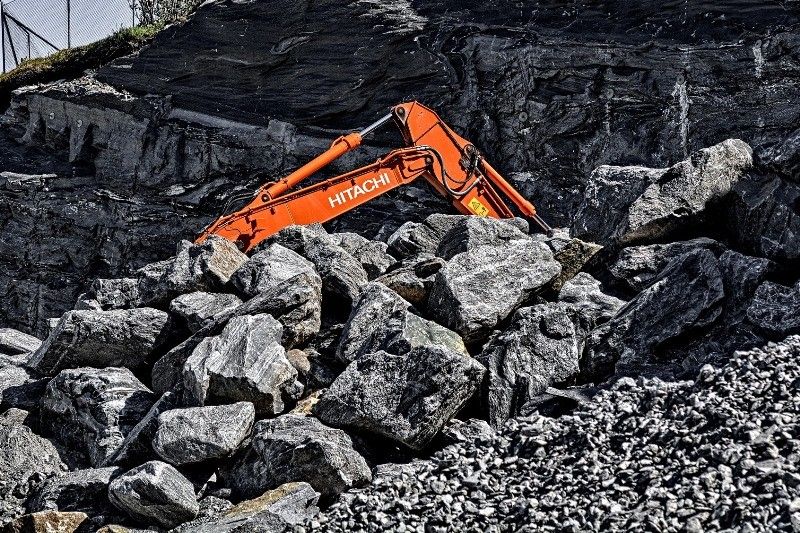Does the Philippines need new laws to ensure responsible mining?

An analysis on the government's mining laws and policies
There is a general recognition that mining is a necessary component of economic growth in the Philippines. Since the 1970s, mining has been regarded as a potential driver of economic development. The demands of a fast-growing population, within the context of development, require natural resource extraction and utilization. Many mineral-rich areas, however, are also environmentally valuable. Thus, the contest between the economic return of mining and the benefit of preserving an area for environmental protection is ever-present, and often controversial.
Despite the significant disturbance that mining creates, there should be a general agreement that, when done responsibly, mining can produce net economic and social benefits. At this point of our history, the paramount question therefore is: Do we need new laws to ensure mining is done responsibly?
There should be a general agreement that, when done responsibly, mining can produce net economic and social benefits.
As a background, Republic Act No. 7942 or the Philippine Mining Act was enacted in 1995. In that same year, the mining law’s constitutionality was challenged before the Supreme Court. It took the High Court almost a decade to decide in favor of upholding the validity of the Mining Act in 2004 after a motion for reconsideration. Subsequently, however, Executive Order (EO) No. 79, which suspends the granting of new mining permits, was issued in 2012. Presently, EO 79 is still in place amidst the intensified mining audits conducted by the present administration.
Notwithstanding the fact that the Mining Act of 1995 has technically been just in operation for less than eight years, calls to scrap the existing law have been ringing in the public arena. In particular, alternative mining bills have been pending in the legislative mill and have been re-filed for consideration of the current 17th Congress.
In furthering the amendment or abolition of the law, it is noteworthy that the eight-year old Mining Act that regulates an industry that has a cycle of more or less 20 years. Significantly, this governing law for mining goes beyond the technical requirements of the industry and contains provisions for environmental protection and social development.
While the goals set in amending the Mining Act, or in creating new mining regulations, are undoubtedly in the best interest of the country, the proposed methods to attain these goals, however, may not be the most effective. Some of the proposals include limiting the raw metals the country will produce to only serve the local market. Because of the existing regulatory and economic circumstances besetting the industry, such a policy will not jumpstart any industrialization and development of downstream metals, but may effectively kill the mining industry due to the limitations imposed in their production.
Some of the proposals include limiting the raw metals the country will produce to only serve the local market.
Moreover, proposals to extend the no-mining zones over what are already covered under the Mining Act and the National Integrated Protected Areas System Act nearly amounts to banning mining from the entire country. An unscientific or inefficient exclusion of areas may result in a law that deprives a community, or even a nation of a livelihood or development opportunity.
This is not to say, however, that the Mining Act of 1995 is perfect. There is still a lot of room for improvement such as in the transparency and dissemination of data concerning environmental programs, findings and mineral production. It is also desirable to mandate the allocation of additional funds for environmental protection, the increase of waste generation fees, and some form of insurance for natural hazards.
There is still a lot of room for improvement such as in the transparency and dissemination of data concerning environmental programs, findings and mineral production.
Ultimately, the question is how to account for the environmental impact of every mining activity to the ecosystem of the country. In this regard, how exactly is the desirable amount of extraction determined? There can be a general agreement that mining activity should result in a net gain, that is, considering the damage that mining may inflict, the environmental, economic and social impact must outweigh the damage. But how are these measured?
In the end, it would be a matter of choice on what risks we, as a people, are willing to take. To empower our citizenry to make that choice, there is the need to ensure people have the information they need to understand the consequences of the choice our leaders make. Participatory decision-making requires that the people must have access to information, opportunities for meaningful participation and judicial redress. The point now is to make sure that this knowledge is available and that these mechanisms work.
To empower our citizenry to make that choice, there is the need to ensure people have the information they need to understand the consequences of the choice our leaders make.
Only the actual use of the existing provisions of the law would allow the mining industry to determine better practices and policies. The principles of accountability and transparency require that mining corporations and government regulatory agencies be made accountable for their every action. The law allows us the opportunity to make them accountable, and only an informed, active and engaged population can make them truly accountable. This is the path toward responsible mining.
Lawyer Lysander Castillo is an environment fellow at the Stratbase-Albert Del Rosario Institute (ADRi) and the secretary-general of the Philippine Business for Environment Stewardship.
- Latest


























